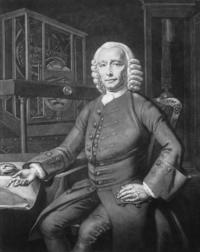Finally, Harrison, age 79, appealed to the highest authority in Britain, King George III, who summoned him for a personal audience at Windsor Palace.
“I cannot help thinking,” he wrote to the board, “but I am extremely ill used by gentlemen who I might have expected different treatment from… I hope I am the first, and for my country’s sake, shall be the last that suffers from pinning my faith on an English Act of Parliament.”
George III had an informed and sympathetic interest in technology. He had been so impressed by the accounts of the Tartar’s voyage that he had granted Harrison and his son an audience at Windsor. And so Harrison now asked for another audience in which to state his case, the case for his Number Four. The audience was granted, and upon hearing the story, George III lost his patience. “You have been cruelly wronged. By God, Harrison, I’ll see you righted,” the king declared, and so he did.
Harrison received the balance of the £20,000 in 1773 and died at his house in Red Lion Square in London on March 24, 1776, age 83. The BBC’s 2002 public poll of the 100 Greatest Britons saw Harrison place 39th.
Here we have the story of wrestling with a hard problem. In this case, it was essentially one individual wrestling with the problem for his entire lifetime, starting from the basis of a craft he learned at his father’s feet. It’s almost difficult to imagine anyone at the time who could have been better versed in the art, the craft, and the technique of carpentry and by extension of mechanics, than John Harrison.
Yet he realized the solution to his own self-imposed Hard Problem was to abandon the path he’d been following for nearly 40 years (H1—H3) and to embrace a new direction entirely.
We, as a profession and as an industry, are deeply in need of taking inspiration from stories such as Harrison’s. Confronted today by Hard Problems (“the Longitude” was an exceedingly hard problem in its day), we seem to resort to the H1’s, H2’s, and H3’s of our world, doing what’s familiar and comfortable, modest extensions of and marginal improvements upon what we know how to do in our sleep. Our craftsmanship may be exquisite, but on a more profound level we’re answering the wrong question. We are not truly wrestling with the Hard Problem.
Symbolically, we are architects designing a new version of Parliament, not envisioning a Shard.
We need leaders with the creative vision, driven by determination, that Harrison displayed. Otherwise we are doomed to build more H1-3’s, brilliantly executed, fundamentally flawed, machines.





